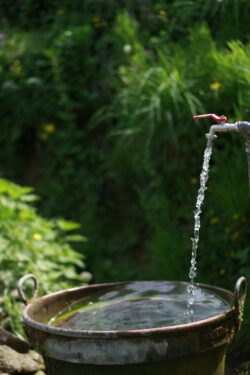Camp Lejeune & Prostate Cancer
This article delves into the significant water contamination at Camp Lejeune, a U.S. Marine Corps base, between 1953-1987, and its correlation with an increased rate of prostate cancer in exposed individuals. We will explore the toxic elements involved, the subsequent health implications, and the available legal recourse. This evidence-based study is paramount for those dedicated to serving victims of this public health crisis and seeking justice for those affected.

The Link Between Camp Lejeune and Prostate Cancer
The link between Camp Lejeune's water contamination and the development of prostate cancer has been established through various studies, showing that men exposed to the toxic chemicals in the water were twice as likely to develop this form of cancer. This has prompted the exploration of various prostate cancer treatment options and prevention strategies. Toxic substances such as benzene, PCE, TCE, and vinyl chloride were found in the water, heightening the risk of prostate cancer. Early detection and treatment can significantly improve the prognosis. Prevention strategies should include regular screenings for those exposed, as well as lifestyle adjustments that promote overall health. These findings underscore the importance of clean water and environmental responsibility in cancer prevention.
The Toxic Water Issue at Camp Lejeune
Exposure to contaminated drinking water, laced with harmful chemicals such as benzene, PCE, TCE, and vinyl chloride, was a grim reality for over a million individuals stationed at the military base between 1953 and 1987. The health effects of the toxic water at Camp Lejeune are profound and far-reaching, significantly increasing the risk of various cancers and non-cancerous health conditions. Understanding the legal process for Camp Lejeune lawsuits is crucial for affected individuals seeking justice and compensation. The process involves filing claims, gathering evidence, meeting deadlines, and negotiation stages. Legal assistance is often indispensable in navigating this complex process. By acknowledging the devastating impact of this contamination, we can better serve those affected, fostering justice, healing, and prevention for future generations.
Understanding Prostate Cancer: Causes and Symptoms
Understanding the causes and symptoms of this particular type of malignancy is key to early detection and effective treatment. Prostate cancer develops in the prostate, a small gland that makes seminal fluid. It's one of the most common types of cancer in men. While some types are slow-growing and require minimal treatment, others are aggressive and can spread quickly. Symptoms include difficulty urinating, blood in semen, discomfort in the pelvic area, and erectile dysfunction. Risk factors include age, family history, and exposure to certain chemicals. Prevention methods involve regular screenings, maintaining a healthy diet, and avoiding exposure to harmful toxins. Treatment options range from surgery and radiation therapy to hormonal and chemotherapy. Early diagnosis enhances the success of these treatment options.
The Impact of Camp Lejeune Water Contamination on Men’s Health
Contaminated water supply at a renowned military base has had severe repercussions on the health of many men, leading to an increase in various serious illnesses. At Camp Lejeune, the toxicity of the water, polluted with hazardous substances like benzene, PCE, TCE, and vinyl chloride, resulted in alarming rates of prostate cancer among the exposed population. Men's health impact was significant, with those exposed to benzene twice as likely to develop the disease. The U.S. Department of Veterans Affairs (VA) offers benefits to those affected by this grave situation. The VA benefits, while not explicitly listing prostate cancer as a presumptive condition, may still be accessible with appropriate evidence, providing some relief to the victims of this disastrous contamination event.
Health Risks Associated With Camp Lejeune Water Exposure
Numerous health risks are associated with exposure to the toxic substances found in the drinking water supply at this military installation, including various forms of cancer and non-cancerous conditions such as Parkinson's disease and infertility. Scientific studies have confirmed the health effects of toxic water exposure at Camp Lejeune, making it one of the largest public health crises in our military history. Victims bear not only the physical and emotional burden of disease but also the significant financial costs associated with treatment. Recognizing this, legal options for Camp Lejeune water contamination victims have been established. These include compensation claims through the Department of Veterans Affairs and the Camp Lejeune Justice Act of 2022, which allows affected individuals to pursue additional compensation via legal action.
Veterans and Prostate Cancer: The Connection to Camp Lejeune
The link between military veterans and a certain common male malignancy has been investigated extensively, particularly with reference to those who were stationed at a certain North Carolina base during its years of water contamination. The exposure to toxic chemicals, including benzene and TCE, found in the water at Camp Lejeune has been associated with an increased risk of prostate cancer. These veterans now have the legal right, through camp lejeune water contamination lawsuits, to seek compensation for the health problems they endure. Camp Lejeune veterans support networks have been vital in spreading awareness about the issue and guiding affected parties through the legal process. Study findings have underscored the importance of continual health monitoring for veterans and the need for comprehensive medical support.
Legal Remedies for Victims of Camp Lejeune Water Contamination
Legal recourse is available for those impacted by the water contamination issue, allowing affected individuals to seek justice and compensation for health conditions directly linked to the exposure. The legal process involves gathering evidence, such as military and medical records, to establish a direct connection between the water contamination and health issues like prostate cancer. The Camp Lejeune Justice Act of 2022 provides a critical avenue for affected individuals to pursue compensation options. These options may cover short-term and long-term medical expenses, loss of income, and even wrongful death. It is vital to engage a competent Camp Lejeune lawyer to navigate this complex process and ensure all deadlines are met. These legal remedies empower victims to seek redress and hold accountable those responsible for the contamination.
The Role of the U.S. Department of Veterans Affairs in Camp Lejeune Cases
The U.S. Department of Veterans Affairs (VA) plays an essential role in providing veterans affairs benefits to those affected by the Camp Lejeune water contamination. These benefits can support the cost of medical treatment and aid in living adjustments for those suffering from diseases linked to the contamination. Moreover, the VA also assists in navigating legal options available. For instance, the Camp Lejeune Justice Act of 2022 enables veterans and their families to seek compensation for their suffering. However, it's crucial to understand that although prostate cancer is prevalent amongst affected individuals, it is not listed as a presumptive condition. Therefore, acquiring VA benefits requires substantial evidence linking the contamination to the disease, necessitating professional legal assistance.
Filing a Prostate Cancer Claim: Procedure and Deadlines
Understanding the procedure for filing a claim and adhering to set deadlines can significantly influence the outcome of a case involving toxic exposure-related health conditions. Particularly for those affected by the Camp Lejeune water contamination, the legal procedure can be complex and requires careful attention to detail.
- Engage a lawyer specialized in these cases to ensure accuracy in filing.
- Provide evidence of presence at Camp Lejeune during the contamination period and medical documentation proving prostate cancer diagnosis.
- Adhere strictly to filing deadlines to avoid claim dismissal.
- Be prepared for negotiations and potential court proceedings.
Filing a claim is more than just a bureaucratic process; it represents a pursuit of justice for those affected by negligence and disregard for public health.
Compensation Rights for Prostate Cancer Patients Linked to Camp Lejeune
Transitioning to the issue of compensation rights, prostate cancer patients linked to the Camp Lejeune water contamination are potentially eligible for substantial compensation. This is due to the established, evidence-based link between the toxic chemicals in the water supply and the development of prostate cancer. The compensation eligibility may cover medical expenses, loss of income, and other damages. However, navigating the legal options can be complex. It's essential to understand the specific criteria for eligibility, the process of filing a claim, and the potential legal challenges. Working with a specialized attorney can be beneficial in strengthening the claim and securing rightful compensation. The Camp Lejeune Justice Act of 2022 further solidifies the rights of victims, providing a legal platform for the pursuit of justice and compensation.
The Importance of Legal Support in Camp Lejeune Prostate Cancer Cases
Legal support plays a crucial role in navigating the complexities of water contamination cases, particularly where health repercussions such as the development of malignant diseases are involved. Choosing the right Camp Lejeune lawyer is critical in such situations as it significantly influences the outcome of the case. The legal process in Camp Lejeune cases can be intricate, therefore, having a skilled lawyer who understands the nuances is essential.
- A proficient lawyer can effectively gather and present evidence linking the contamination to the health condition.
- The right legal support can guide you through the VA claim process or filing a lawsuit.
- Lawyers adept in this field can help in negotiating settlements.
- Legal deadlines, which are crucial in these cases, are meticulously managed by competent lawyers.
With a professional Camp Lejeune lawyer, victims stand a better chance of obtaining justice.
Key Evidence in Proving a Camp Lejeune Prostate Cancer Claim
In order to substantiate a claim related to toxic exposure resulting in a malignant condition, it is crucial to compile a compelling body of evidence. This process involves proving causation–linking the prostate cancer to the toxic exposure at Camp Lejeune. Medical records indicating the diagnosis, along with documentation demonstrating residence or service at Camp Lejeune during the contamination period, form the backbone of this evidence. It's also beneficial to include epidemiological studies supporting the link between the contaminants and prostate cancer. Despite the legal challenges, it is essential to meticulously piece together the evidence. Working with a legal professional experienced in these cases can significantly aid in successfully navigating the complexities of proving causation in a Camp Lejeune prostate cancer claim.
The Future of Camp Lejeune Prostate Cancer Cases: What to Expect
Looking ahead, there is significant anticipation surrounding the potential outcomes and developments in lawsuits related to toxic exposure resulting in malignant conditions. The future of Camp Lejeune prostate cancer cases is expected to be shaped by a combination of legal precedents, potential settlements, and advancements in medical research.
- *Legal Precedents:* Future cases will be influenced by outcomes of existing lawsuits, establishing a foundation for determining liability and compensation.
- *Potential Settlements:* A surge in successful claims could encourage settlement negotiations, potentially expediting compensation for victims.
- *Medical Research:* Emerging research linking toxic exposure to specific health conditions could strengthen legal arguments.
- *Public Awareness:* Increased understanding of the issue may generate public and political support, potentially influencing legislative changes or funding for affected individuals.
These factors will collectively shape the trajectory of these cases, underscoring the importance of staying informed and proactive.
Frequently Asked Questions
Are There Any Preventative Measures in Place Now to Prevent Another Water Contamination Incident at Camp Lejeune?
To prevent future water contamination incidents, comprehensive contamination cleanup efforts have occurred. Additionally, future safeguards, including advanced filtration systems and regular water testing, are now standard practice to ensure safe drinking water.
Are There Any Support Groups or Resources for Those Suffering From Prostate Cancer Due to the Camp Lejeune Water Contamination?
Yes, numerous resources exist for those impacted by contamination-induced prostate cancer, such as the American Cancer Society. Survivor stories can be found online, offering comfort and shared experiences to those navigating similar health challenges.
How Has the Camp Lejeune Water Contamination Affected Families and the Community as a Whole?
The contamination consequences have significantly impacted families and communities, leading to various health issues. The long-term health impact includes increased cancer risk, non-cancerous illnesses, and emotional stress, altering the quality of life for many individuals.
Can a Claim Still Be Filed if the Affected Individual Was Not a Veteran, but a Civilian Living or Working in the Area at the Time of the Contamination?
Yes, civilians impacted by environmental contamination can file claims. The claim process requires evidence of exposure and harm. Legal assistance is essential to navigate complex regulations and support the pursuit of deserved compensation.
Are There Any Ongoing Research Studies Regarding the Long-Term Health Effects of the Camp Lejeune Water Contamination?
Yes, research continues into the long-term health effects of water contamination. These studies aim to understand the full scope of contamination effects, including cancer risks, and contribute to advancements in medical and environmental research.
Conclusion
In summary, the water contamination at Camp Lejeune has had detrimental health implications, notably an increased incidence of prostate cancer among exposed men. The correlation underscores the necessity of comprehensive healthcare and legal support for affected individuals. Through the Camp Lejeune Justice Act of 2022, compensation rights are now available, setting a precedent for future cases. Continued research and legal advocacy are crucial in ensuring justice and understanding the full impact of such environmental disasters.

This post has been generated by AI and was not reviewed by editors. This is Not legal advice. Please consult with an attorney.




